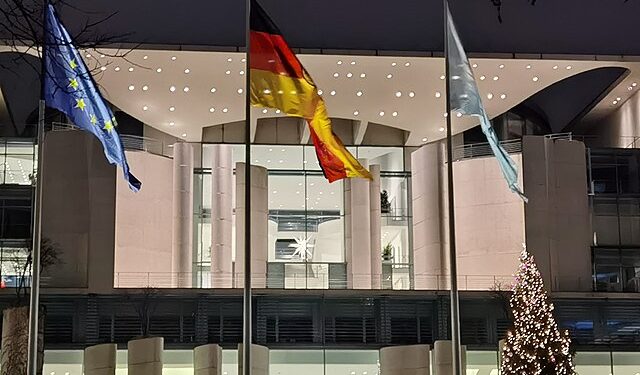By Aisling Lynch-Kelly and Dr Ritumbra Manuvie
At the end of October, Indian Prime Minister Narendra Modi rolled out the red carpet for German Chancellor Olaf Scholz. Whilst enjoying the opulent displays of grandeur in New Delhi, Scholz can hardly have imagined that less than two months later, he has lost a confidence vote in the German parliament and is facing elections in February. Despite the chaos at the heart of the Union, the EU has managed to convince the Indian government to finally sit at the table, rescheduling the EU-India Human Rights Dialogue for the 8th of January 2025.
As two huge democracies, both sides have committed, at least in theory, to basing their expanding relationship on shared values of human rights and the rule of law, pledging to enter into an annual Human Rights Dialogue. Originally scheduled for August 2024, the dialogue was called off by the Indian government just one day before talks were set to begin in New Delhi.
Whilst India itself is in a rather strong position to publicly criticise Europe’s lagging protection of minorities, particularly the Roma communities, India’s Foreign Minister chose to ignore the universal application of human rights, instead bargaining silence for silence and business for business.
Today, civil society was unofficially advised the dialogue has been rescheduled to January. Whilst this may appear to be good news, these dialogues are nothing more than a paper tiger. It is hardly a coincidence that an EU delegation of MEPs are visiting the country at the same time as the rescheduled dialogue. Now that the human rights box is soon to be checked off by the European Commission, the delegation, who are seeking to enhance EU-India digital innovation, will be able to sell off the EU’s digital economy to the highest bidder in India. No questions asked.
But in the process European Commission is failing to enact its own parliament’s decision to ‘effectively enshrine human rights and democratic values at the heart of the EU’s engagement with India.’ As the EU and member states continue to cosy-up to the Modi regime, European diplomats such as the EU, Belgian, German and Danish Ambassadors allow themselves to be courted by Modi-backed oligarchs while presenting the EU’s disdain for similar oligarchs in Russia and China.
The subversion of the European parliamentary decisions and resolutions is not new. While the European parliament discussed the Manipur conflict and passed an Urgency Resolution in 2023, the commitment to human rights has remained merely on paper. Manipur continues to struggle with gross human rights violations, curfews and internet shutdowns. Last month again an ethnic minority woman was raped and burnt alive by perpetrators as part of ongoing campaign against civilians. And still, the blocs have failed to have an independent, transparent and meaningful dialogue to resolve the situation, adopting rather a conspiracy of silence on human rights.
In spite of India’s failing human rights standards and fall to an elected autocracy, acting German Chancellor Scholz assured the Modi regime that he would ‘strongly favour an ambitious free trade agreement between India and the European Union.’ Whilst doing so the Chancellor also seemingly ignored the Commission’s Impact Assessment on a potential FTA, which found that it could not be introduced in full due to ‘serious pre-existing vulnerability regarding multiple issues related to human and labour rights’, including child labour. Religious minorities, Dalits, and Indian children would also be negatively impacted by an agreement.
Civil society organisations continue to raise concerns that a deviation from the central values of democracy, the rule of law and a shared respect for human rights in the EU-India relationship will set yet another dangerous precedent where geopolitical strategic interests and economic partnerships are prioritised over the actualisation of universal human rights.
To ignore the parliamentary and constitutional mandates, and fail to centre the EU-India relationship on human rights is nothing short of dereliction of duty, to both the people of Europe and India, and creates extraneous circumstances for countless minority groups, women and children who will suffer as a result of unhealthy supply chains, that seek to benefit the interest of the few, not the many.
The regions must centre their expanding relationship on human rights and discuss their human rights record, including the ongoing conflict in Manipur. Otherwise, the EU’s expanding partnership with India will have feet of clay.
Aisling Lynch-Kelly is an Advocacy and Communications Officer at The London Story, an Indian-diaspora led organisation that focuses on human and digital rights in India and the Indian diaspora.
Dr Ritumbra Manuvie is the Executive Director of The London Story and an Assistant Professor at University College Groningen, specialising in law, politics and public policy.
This article is republished from The Wire. Read the original article.











